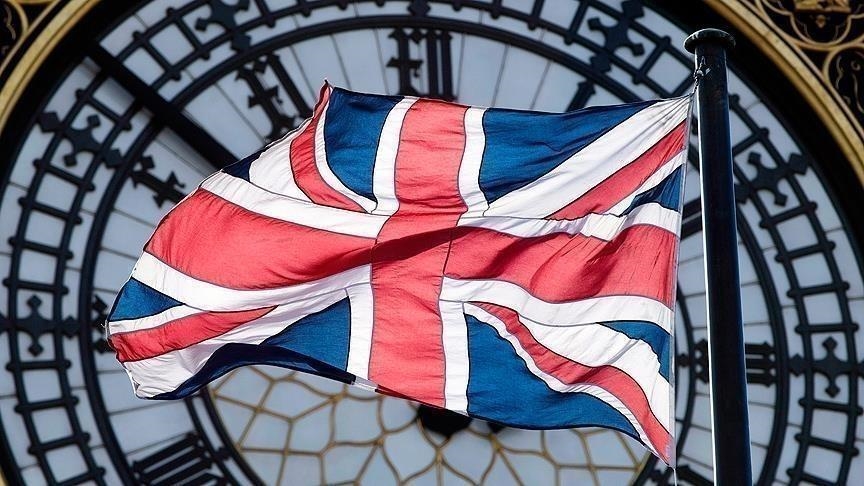British army to mobilize to 'prevent war' in Europe, army chief says
'We're not at war, but we must act rapidly so that we aren't drawn into one," Gen. Patrick Sanders says

LONDON
The British army will mobilize “to meet the new threat” it faces after Russia used force to seize territory from Ukraine and “to prevent war” in Europe, the army chief said Tuesday.
Speaking at the Royal United Services Institute (RUSI), British Chief of General Staff Gen. Patrick Sanders said the country’s armed forces must be prepared to prevent the spread of the land war in Europe.
Sanders said the scale of the war in Ukraine is “unprecedented,” claiming that the Russian army has had 33,000 dead, wounded, missing or captured and the casualty rate for Ukrainian defenders is 200 per day.
The general also pointed out that due to Russia’s “deliberate targeting,” 4,700 civilians were killed and 8 million refugees are on the move.
“The visceral nature of a European land war isn't just some manifestation of distant storm clouds on the horizon. We can see it now,” he said.
“In all my years in uniform, I haven’t known such a clear threat to the principles of sovereignty and democracy and the freedom to live without fear of violence as the brutal aggression of President (Vladimir) Putin and his expansionist ambitions,” he said. “I believe we're living through a period of history as profound as the one our forebears did 80 years ago. And now as then, our choices will have a disproportionate effect on the future.”
Sanders likened the current situation to the time before WWII.
“This is our 1937 moment. We're not at war, but we must act rapidly so that we aren't drawn into one through a failure to contain territorial expansion.”
In his first keynote speech since he took over as the army chief, Sanders said that he will “do everything in my power to ensure that the British Army plays its part in averting war.”
“So from now the army will have a singular focus to mobilize to meet today's threat, and thereby prevent war in Europe.
“This is not the rush to war … it is instead an acceleration of the most important parts of future soldiers, bold modernization agenda, a move to a positional strategy, an increased focus on readiness and combined arms training at a broader institutional renewal that creates the culture required to win if called upon this process.
“We'll give it a name Operation mobilise (that) will be the Army's primary focus over the coming years.”
Sanders said mobilization will be realized under four main titles, which are boosting readiness, accelerating modernization, rethinking war tactics and reviewing the structure of the army.
Echoing Sanders, British Defense Secretary Ben Wallace said he takes “the mobilization of ‘Op MOBILISE’ to be the ruthless prioritization of readiness and relevance.”
Wallace said his “determination to shift from an emphasis on warfighting contingency to persistent presence for containment -- a positional strategy of deterrence-by-denial, for both geographic and influence spaces -- must not become another false choice of one approach over another, but a deliberate rebalancing.”
Wallace said: “We must always be ready to fight, wherever positioned, and in whichever domain, and in doing so contain the Kremlin’s aggression, because it is increasingly clear that President Putin cannot be ‘deterred’ by the threat of punishment or the costs imposed upon his people.”
“Putin must be contained, sealed-off from their sources of influence, funds, and technological capability,” he said. “But he and his government must also be made utterly transparent, a light shone through them and every one of their lies, every corrupt practice, every immoral deed, exposed to the world and to the Russian people. As they too suffer from this tyranny.”
Wallace said he cannot share secret documents he has seen as defense chief but he can say that “however, that we have consistently underestimated Russia’s appetite for aggression; almost forgotten al Qaeda (wrongly); missed the rise of China; and comforted ourselves that cyber is at least out of sight and therefore out of mind for the average voter.”
Underlining that “Russia is the most direct and pressing threat to Europe, to our allies and our shores,” the defense secretary said he is serious “when I say that there is a very real danger that Russia will lash out against wider Europe.”
“And that in these days of long-range missiles and stealth, distance is no protection.”
“Russia is not our only problem,” said Wallace.
“An assertive China ready to challenge the rules-based system and democracy. Terrorism on the march right across Africa. And Iranian nuclear ambitions, to date still unresolved.”
He added that “the threat is growing and is global and multi-domain.”
“It is now time to signal that the peace dividend is over, and investment needs to continue to grow,” he said.
“Before it becomes too late to address the resurgent threat and the lessons learned in Ukraine it is time to ‘mobilize’ – to be ready and to be relevant.”









